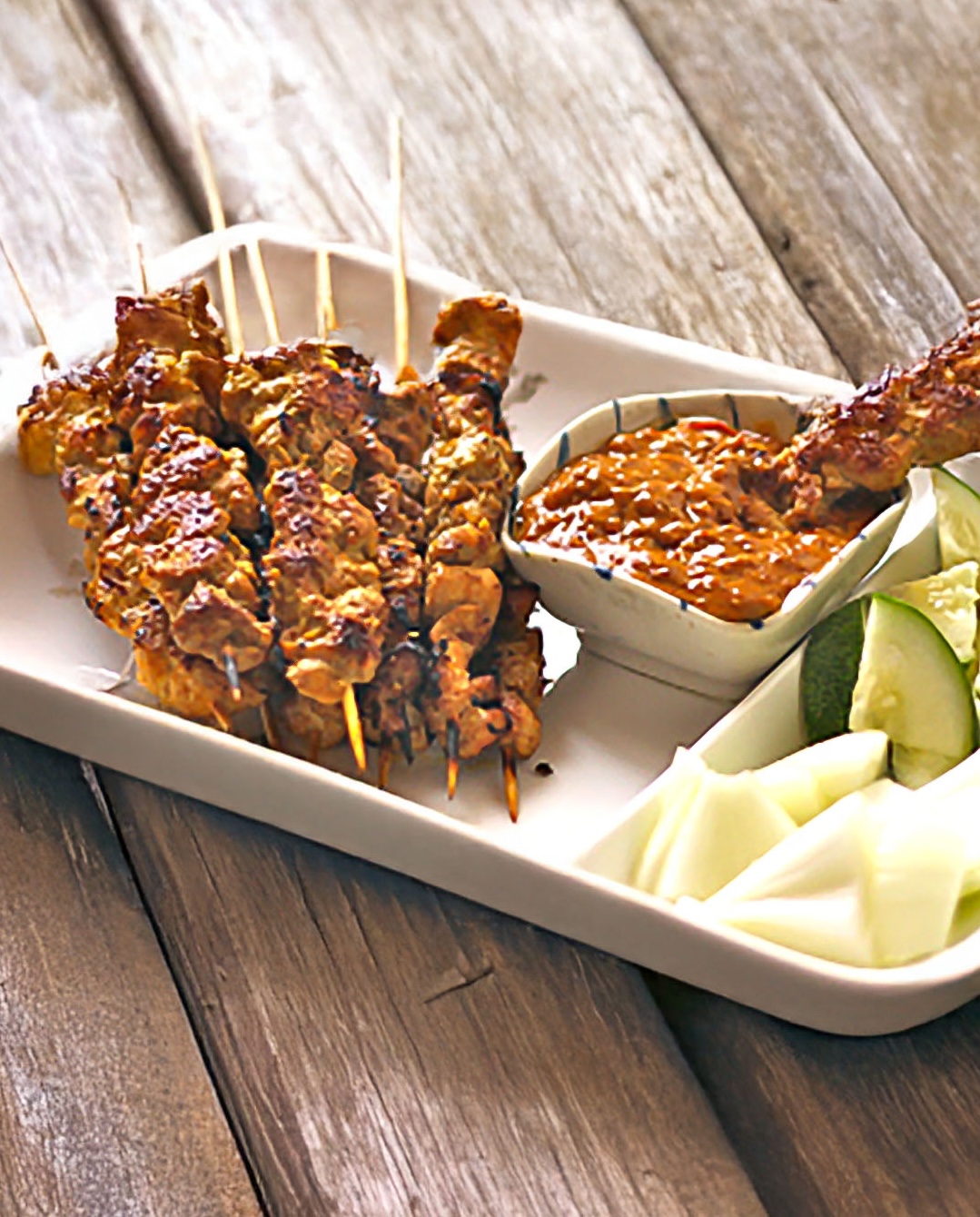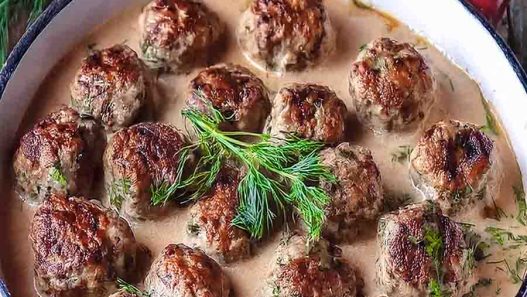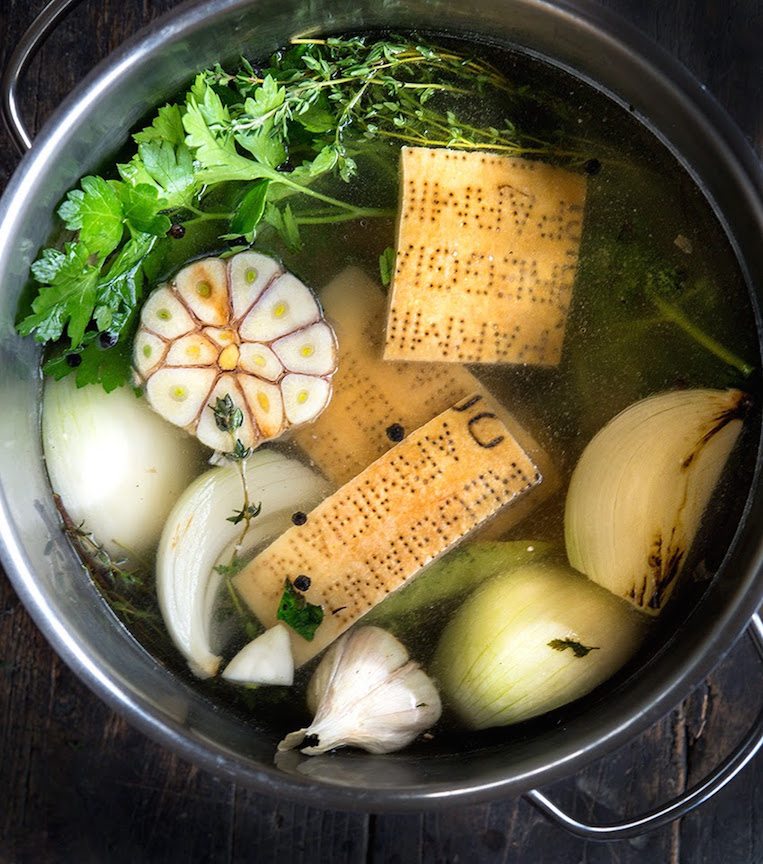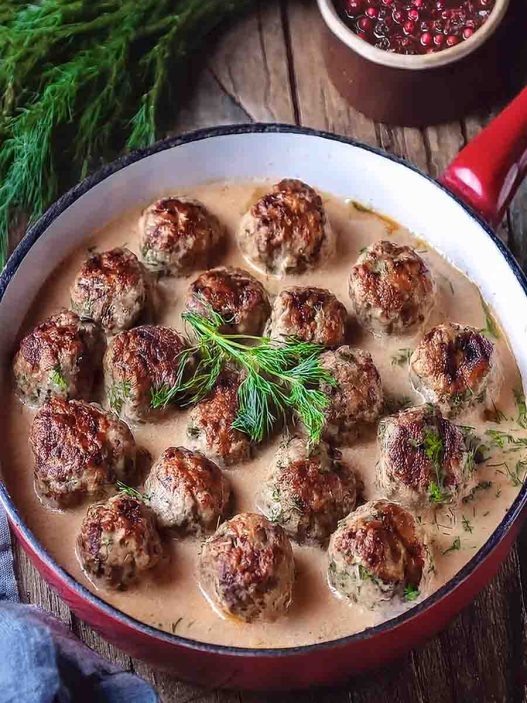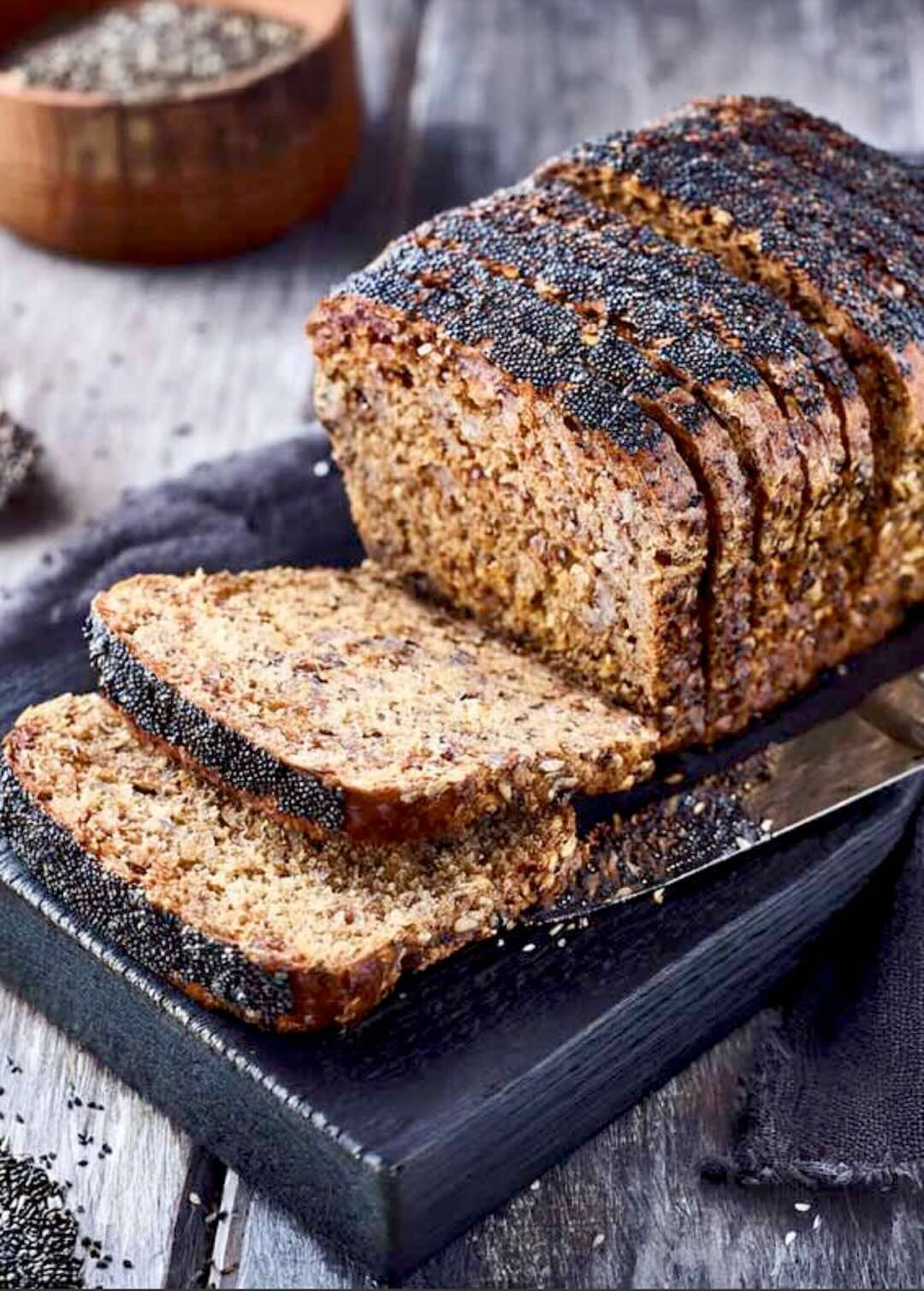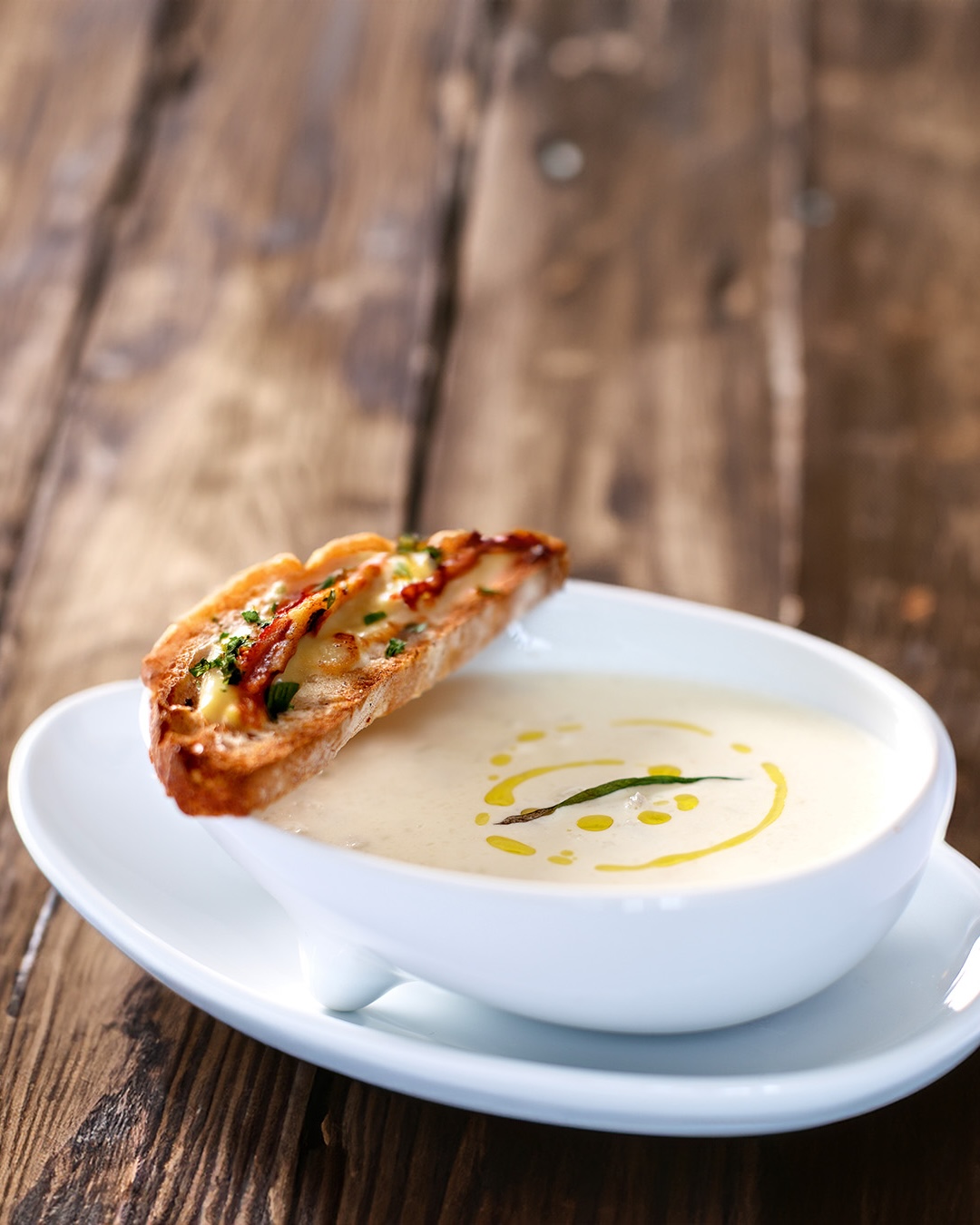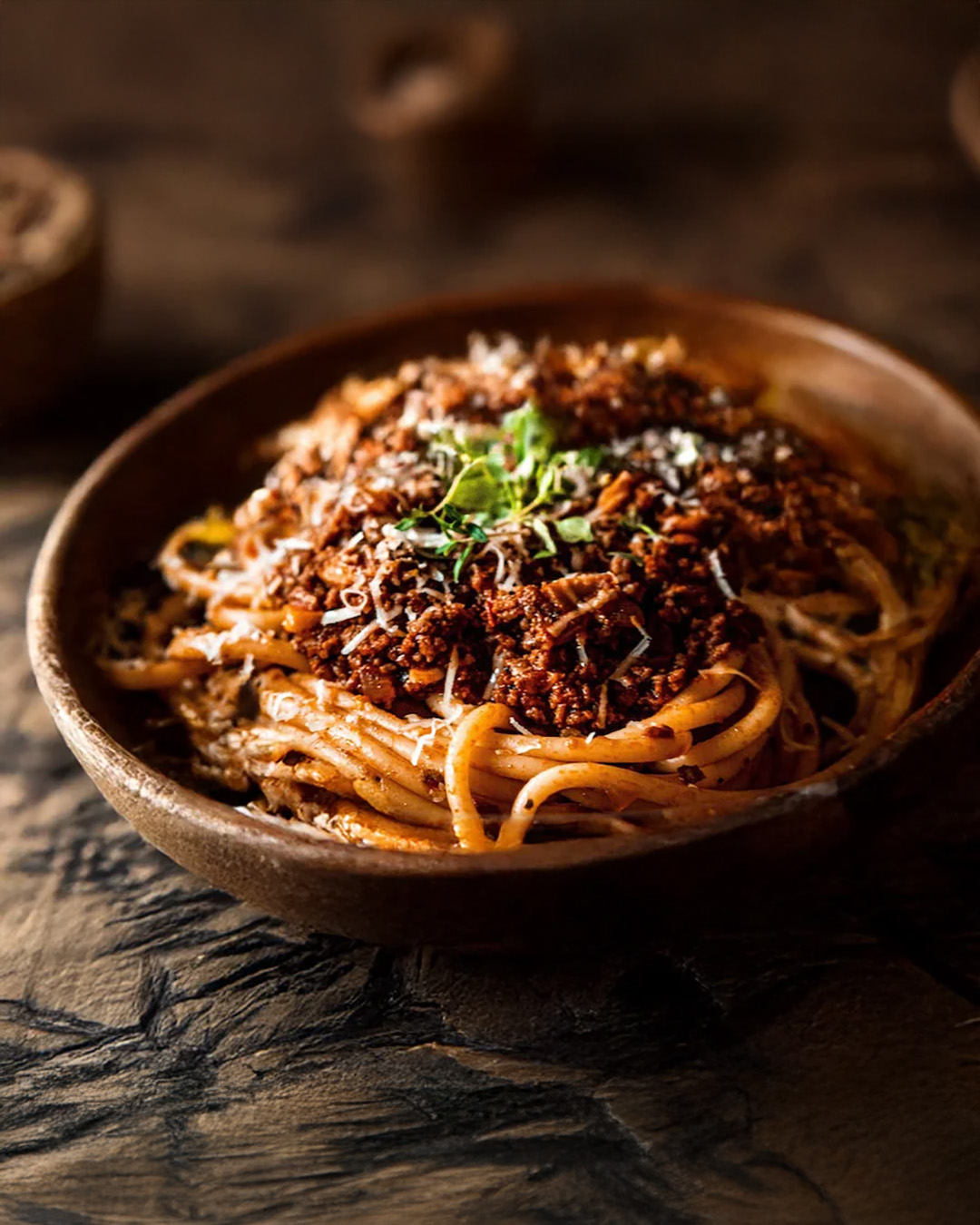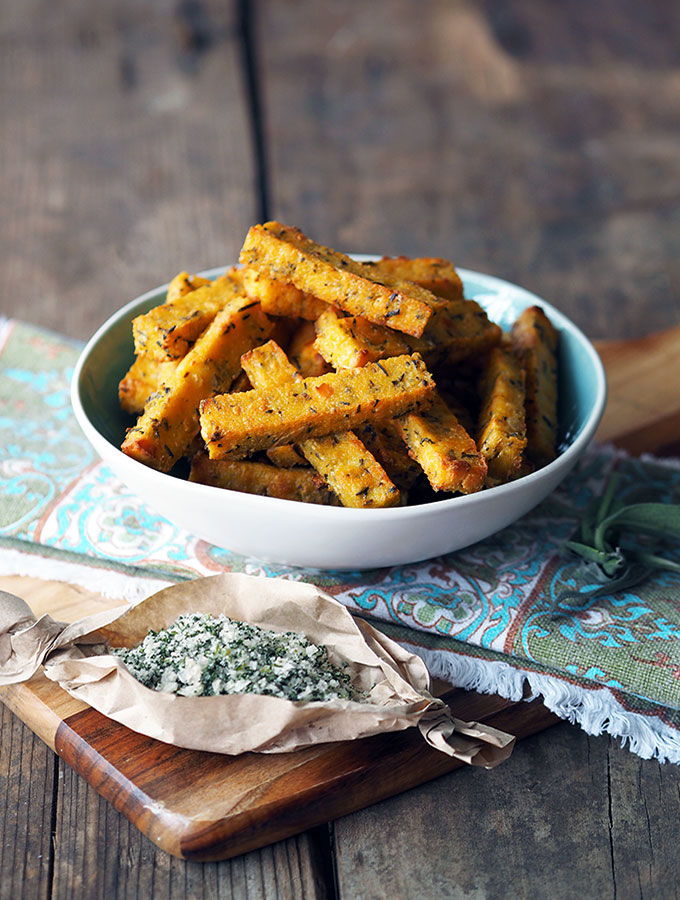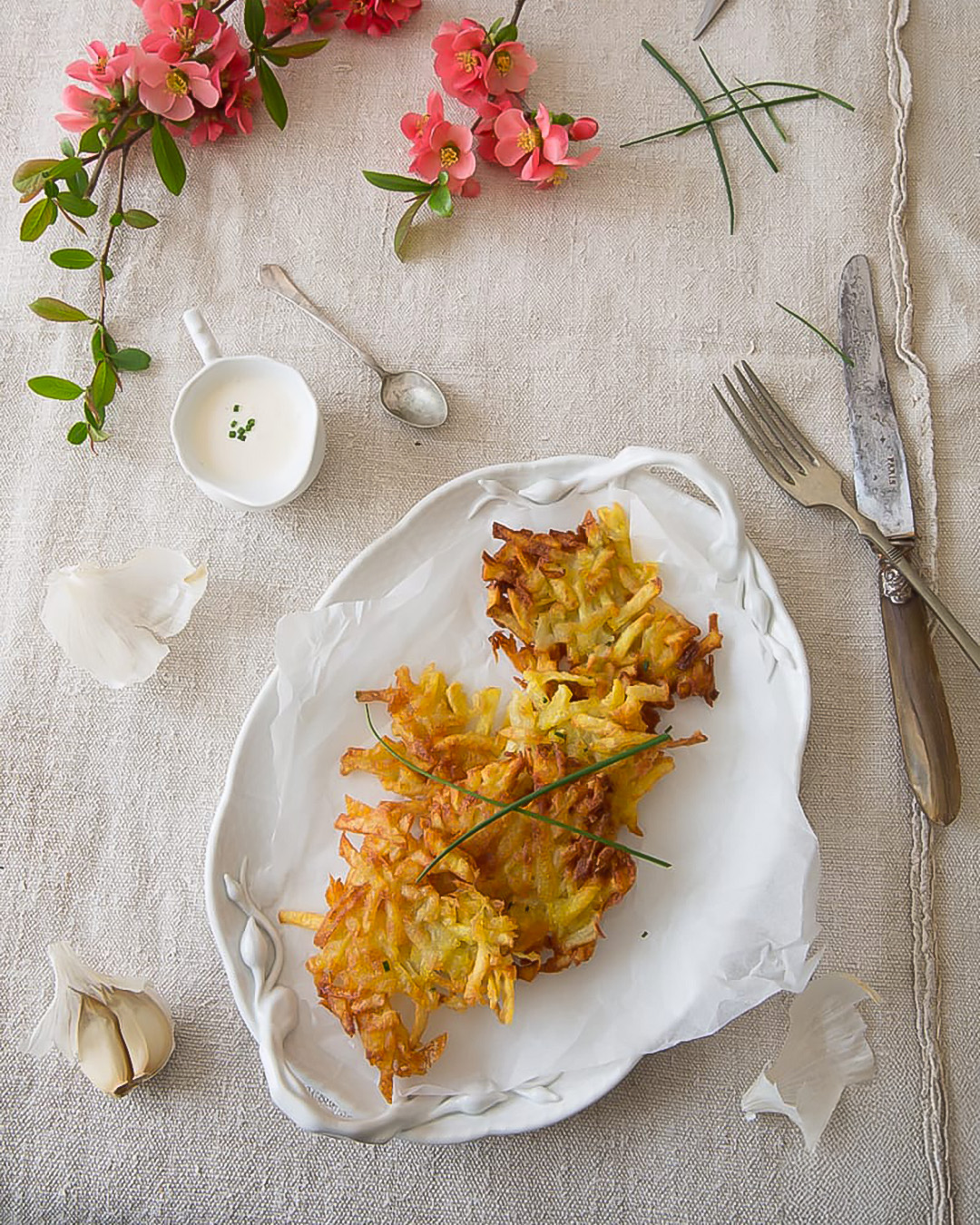A ring of the doorbell on bustling 44th Street reveals a serene retreat behind heavy wooden doors. Guests are ushered inside by servers dressed in traditional robes. Unassuming from the outside, the restaurant is discreetly nestled on the ground floor of The Randolph House luxury residences. The entrance lobby is lined with photographs of the Jing lineage and the dining room is arranged to fit the evening’s guests. In one corner, a handmade Zen garden created by Guo himself features a flowing waterfall and a pomegranate tree symbolizing familial seeds. Soft strains of Guqin music and regal décor further elevate the atmosphere, setting the tone for the evening.
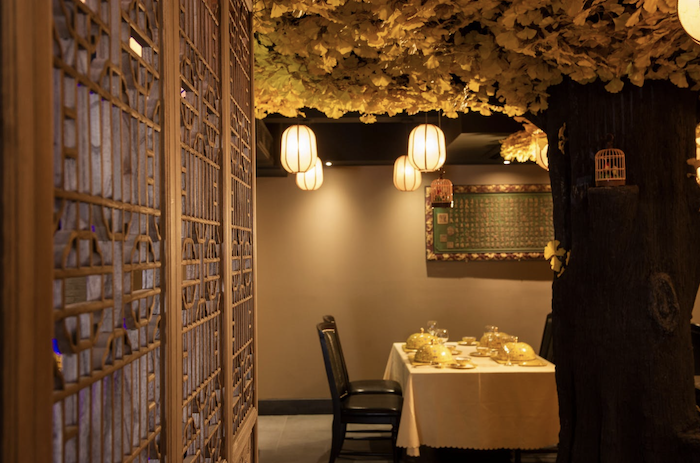
Guo Wenjun, celebrated for his 19-course Royal Imperial Chinese tasting menu priced at $519, has now turned his attention to authentic Chinese vegetarian cuisine. His latest concept, Bodai—a restaurant that sits within a restaurant—artfully redefines plant-based dining.
Every element of the experience reflects Guo’s approach to his craft. Two years in the making, the menu was created by deciphering the writings of his mentor, Chinese Master Chef Ding Guangzhou—a seventh-generation disciple of the line of royal chefs. Presented in a beautifully adorned box, the menu includes a scroll written in both Chinese and English, adding to the ceremonial feel. Multicolored napkins made from natural fibers lend a touch of individuality to each table setting.
Guo’s meaningful approach to cooking starts with his choice in ingredients and stretches to his techniques. “I aim for guests to appreciate a healthy cooking approach that features low oil, low fat, low sugar, low salt, and high fiber, with no additives. This not only highlights the natural flavors of the ingredients but also promotes a low-carbon, environmentally friendly lifestyle.”
The tasting journey begins with The Life of Enlightenment, a colorful roster of bites presenting the five flavors essential to Chinese cuisine: sour, sweet, salty, bitter and spicy. Between the tangy jelly cubes to crisp chips, your palate will sufficiently be opened. The next eight courses that follow are all served with a short story, and a wow factor on presentation alone. Every movement by the servers are calculated and effortless.

The Bodai Buddha Jumps Over the Wall is made with 21 organic vegetables, incorporating nine different types of mushrooms, that are slow cooked for eight hours to create a flavorful broth. The Sweet and Sour Vegetarian Riblets are a play on the classic sweet and sour flavors of Imperial Palace Cuisine, this one replaced with ingredients like crunchy fried tofu skin and crisp slices of Korean pear, in a reminiscent sauce. Other noteworthy dishes include noodles topped with truffle and Nepalese mushroom, known for sporting medicinal properties.

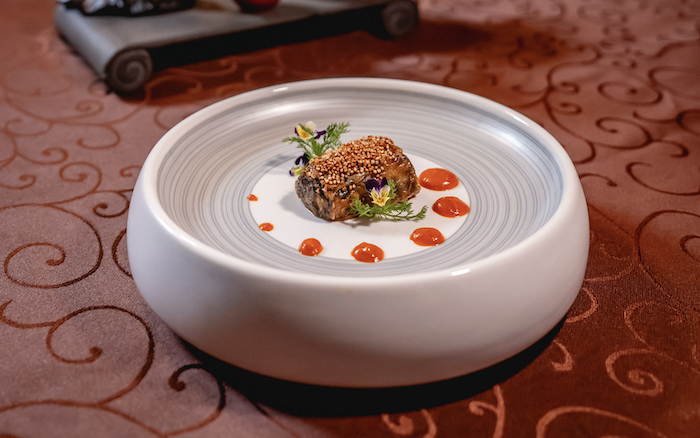
For the final course, Bodai presents a playful Nectar of the Gods. The dessert is served in a delicate eggshell, nestled with an artfully crafted imitation of a bird’s nest. Inside, the yolk mimics the look and texture of egg yolk, this one made from yellow peaches, papayas and silver snow. Designed to be eaten straight from the eggshell, its uncanny resemblance to real egg yolk is so convincing you’d almost forget—until the sweetness reminds you otherwise. If you don’t opt for the five-course wine pairing, guests start with a complimentary tea of their choosing, with flavors like hibiscus or blueberry, cups are refilled throughout the night without missing a beat.
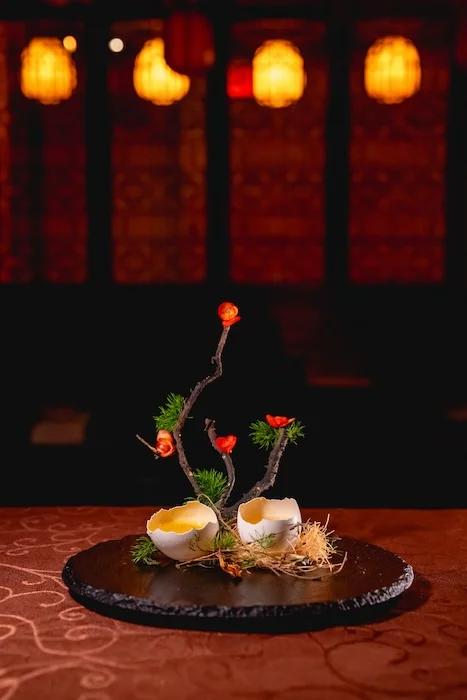
Bodai
135 East 50th Street, New York, NY
Tuesday – Sunday; Seatings at 5pm and 7pm
Website



